International disaster assistance
Help now!
Around the world, Red Cross helps victims of devastating disasters and conflicts. This is possible through the support of everyone who contributes to the Red Cross Emergency Relief Fund. Thanks to your donation, Belgian Red Cross-Flanders can provide disaster relief where it is needed most, free from external influence and looking out for the most vulnerable.
In a natural disaster or violent conflict, there is often chaos, countless injuries and people find themselves in the greatest need one moment to the next and completely dependent on aid. A daily reality for millions of people affected by natural disasters or conflicts worldwide.
Help. Make a donation to BE53 0000 0000 5353 with the mention 'Emergency Relief Fund' and help people in need. This way you help wherever in the world this is needed most.
Natural disasters can happen at any time anywhere in the world. In a disaster, every second counts to save lives. Thanks to our local Red Cross Societies, the Red Cross can be on the scene quickly anywhere. We provide help, faster and more efficiently than anyone else. Our goal: to save as many lives as possible.
We are the largest humanitarian organization in the world, with our 191 national associations and 14 million active volunteers. Every day we help people in need. This local presence makes us unique, so we can provide immediate help. Thus, no precious time is lost anywhere.

On the morning of March 28, an earthquake occurred in central Myanmar, Mandalay region, with a magnitude of 7.7 on the Richter scale (similar to magnitude Turkey-Syria earthquake in February 2023) with an aftershock of 6.7 minutes later. The quake caused extensive damage to buildings, public infrastructure and roads. Initial reports indicate a heavy impact in the Sagaing and Mandalay regions. Collapsed bridges, blocked roads and downed electricity and communications networks impacted relief operations. More than 18 million people were affected by the earthquakes. The greatest needs right now are, safe shelter, potable water and health care. A state of emergency has also already been declared for six regions as well as the demand for international aid.
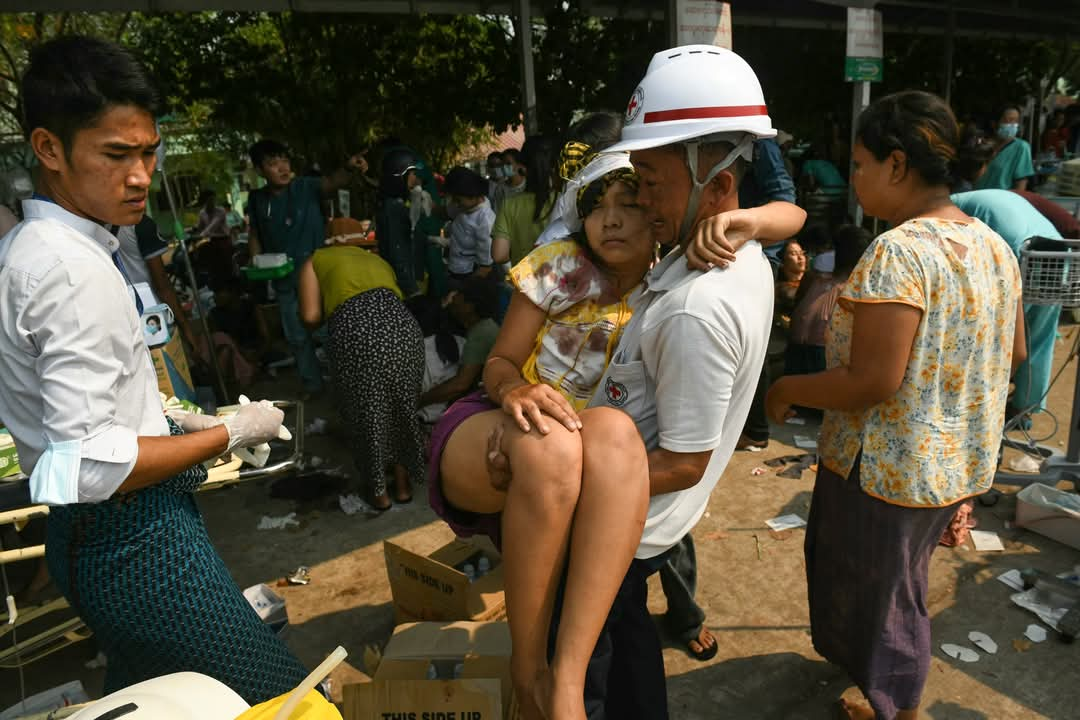
A gift to our Emergency Relief Fund will allow us to jump right into action in the next global disasters and help where and when needed.
Make a donation to BE53 0000 00005353 stating "Emergency Relief Fund" and help those in need.
Spanish Red Cross volunteers are working day and night to support those affected by the massive floods in southeastern Spain. Valencia was hit especially hard, but the regions of Andalucía, Castilla la Mancha and Murcia also had to deal with large amounts of water. More than 200 people have already died and many are still missing.
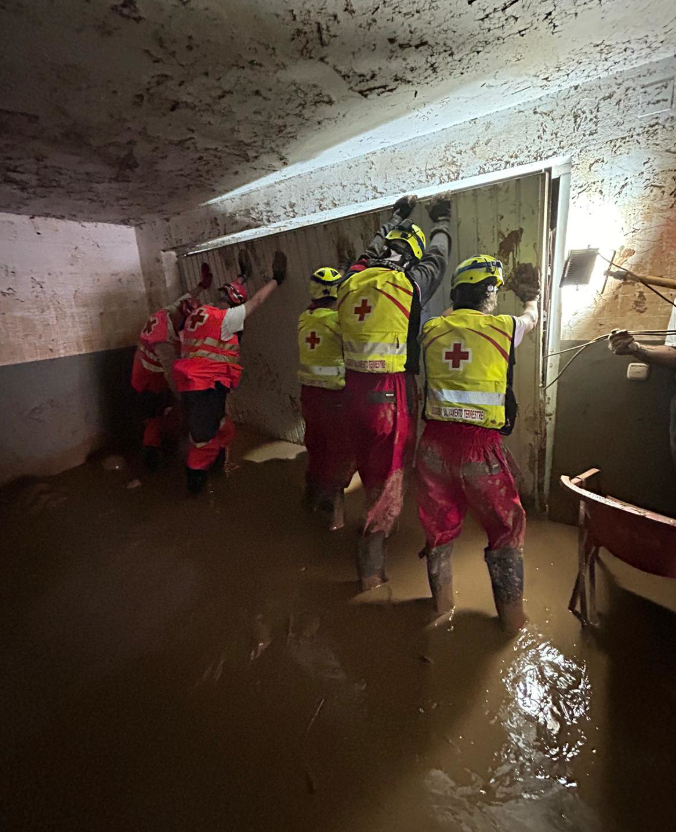
Intervention teams are active in the field, providing first aid to victims. The Spanish Red Cross was thus already able to help more than 260,000 people. Furthermore, it already opened seventeen shelters where some 4,200 people found shelter and others are receiving psychosocial support. In addition, more than 144,000 meals, 4,300 blankets and 38,000 hygiene kits were also distributed, and there are 30 water distribution points.
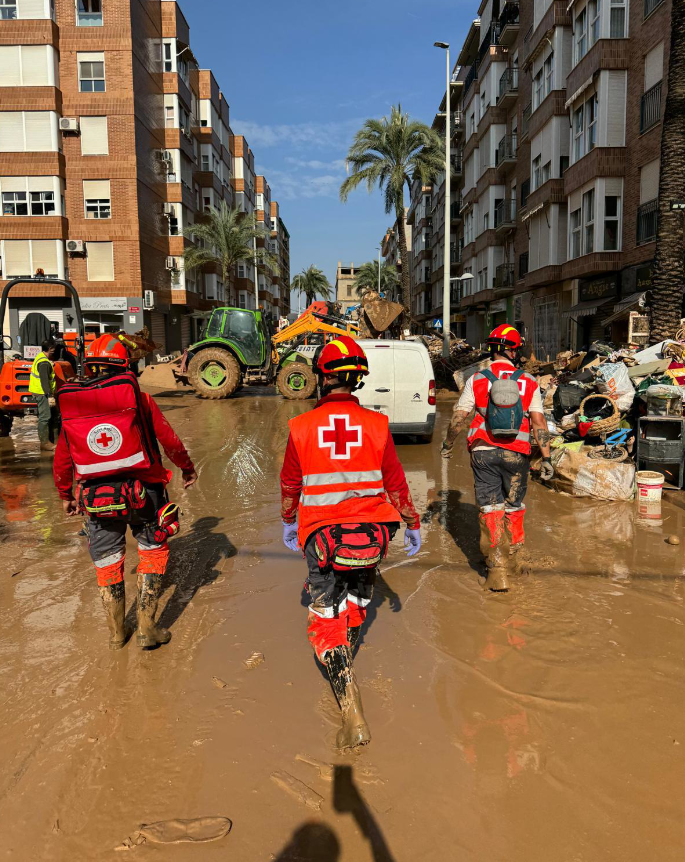
More than 210 teams consisting of 7,399 volunteers and Spanish Red Cross staff are managing the relief operation. Now that the most acute phase is over, they are fully engaged in recovering and rebuilding the region.
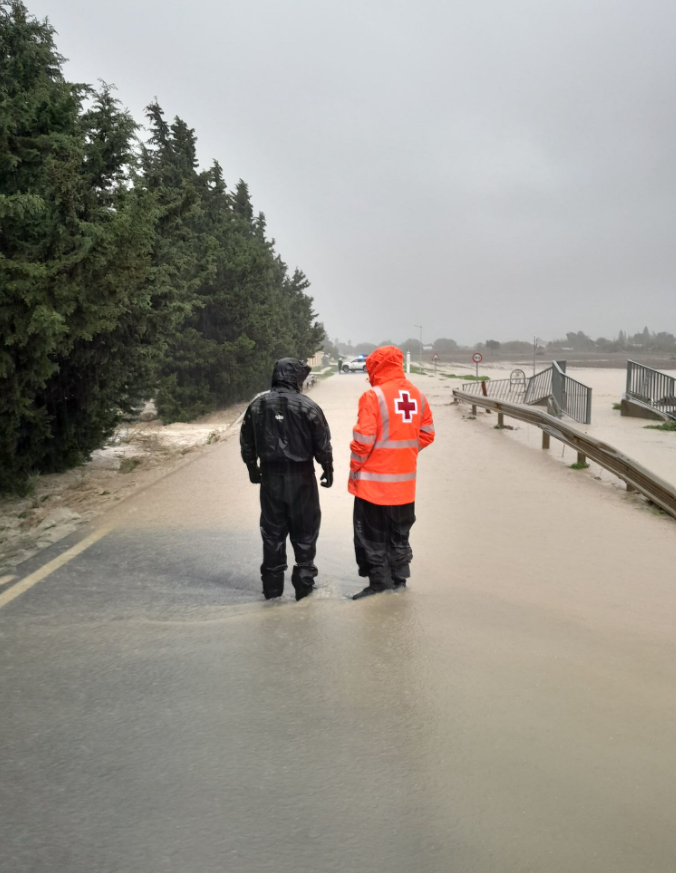
A gift to our Emergency Relief Fund allows us to jump right into action in the event of subsequent global disasters and help where and when it is needed.
Make a donation to BE53 0000 0000 5353 marked "Emergency Relief Fund" and help people.
More updates can be found here.
Belgian Red Cross-Flanders is releasing 100,000 EUR from its emergency relief fund to respond to the mpox outbreak in Central and East Africa, with a focus on the Democratic Republic of Congo (DRC). This will allow us to monitor the outbreak and scale it up further if necessary. In recent weeks, Belgian Red Cross-Flanders already supported initiatives of the Rwandan and Burundian Red Cross in this regard. This through the regular support of the Belgian Federal Government. Our teams in the region are in frequent contact with our sister associations and are closely monitoring the situation.
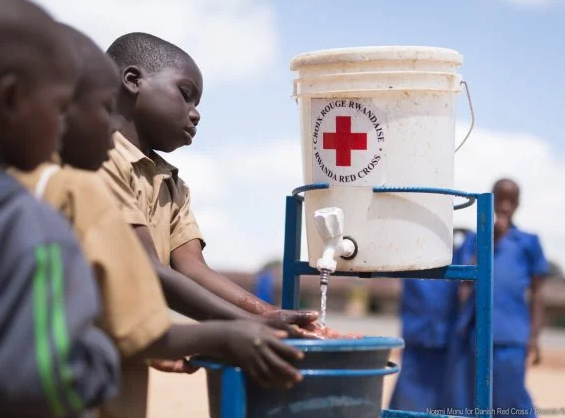
Mpox is a viral infection transmitted by close physical contact with infected persons, animals, or contaminated materials. Symptoms include skin rash, blisters, fever, and headache. In some cases, the infection can be fatal. There are vaccines available that are effective in certain cases, but they are not currently widely available in the affected region.
Currently, the virus primarily affects children. In the Democratic Republic of Congo (DRC), 70% of cases are under the age of 18. In Burundi, children between the ages of 0-5 count for nearly 40% of cases.
More information can be found here.
Democratic Republic of Congo
Local Red Cross volunteers are conducting awareness campaigns and distributing hygiene products to prevent further spread of the virus.
Rwanda
Recently, 90 volunteers were trained to educate communities about mpox. 10,500 pieces of soap have been distributed and psychosocial support is being provided.
Burundi
Sensitization campaigns in several provinces to combat rumors and disinformation.
Uganda
Community-based surveillance in Kasese district, with the goal of early detection of new cases.
How can you help?
A gift to our Emergency Relief Fund allows us to jump right into action in the event of subsequent global disasters and help where and when it is needed.
Make a donation to BE53 0000 0000 5353 marked "Emergency Relief Fund" and help those in need.
Since the weekend of Sept. 14, storm Boris has caused extensive damage in Central and Eastern Europe, including fatalities.
Belgian Red Cross-Flanders immediately releases 200,000 euros from the Emergency Relief Fund to provide assistance to victims of the severe flooding caused by the storm.
We are closely monitoring the situation and will evaluate each new request for aid from the affected countries to provide the necessary support, as needed.
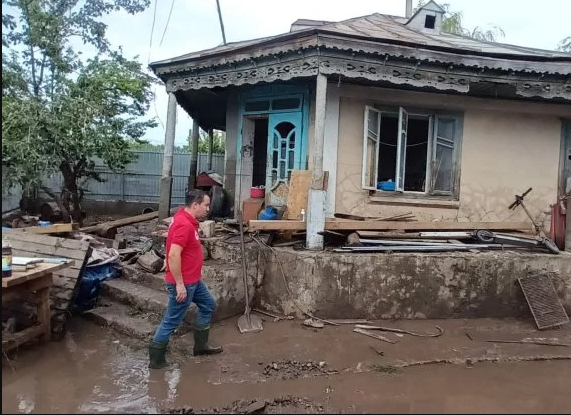
A gift to our Emergency Relief Fund allows us to jump right into action in the event of subsequent global disasters and help where and when it is needed.
Make a donation to BE53 0000 0000 5353 marked "Emergency Relief Fund" and help those in need.
Between February and May 2024, Burundi was hit by heavy rainfall, amplified by the El Niño weather phenomenon. This led to devastating floods, rising water levels of Lake Tanganyika and landslides.
Currently, 1,000 families are still in temporary shelters, while 500 are without shelter. As Burundi enters its second rainy season of the year, the challenges for these vulnerable families remain high.
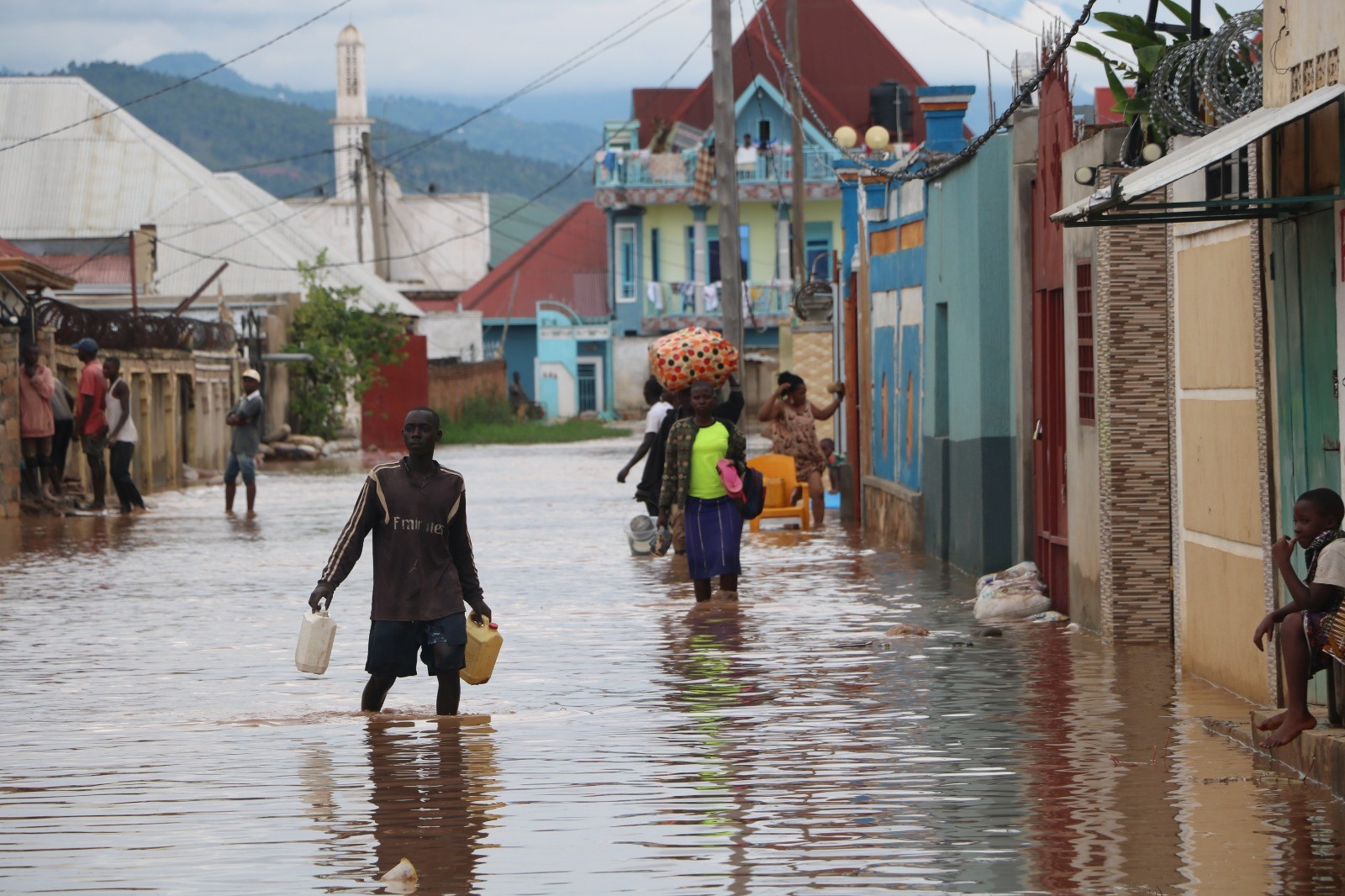

The Burundi Red Cross took immediate action to support those affected. Volunteers helped evacuate families in high-risk areas and installed emergency shelters. The heavy rains destroyed several water supplies, so water reservoirs, also known as "bladders," were installed. These reservoirs can store 10,000 liters of water and have faucets so people can fill their buckets or water bottles.
In addition, hygiene and sanitation facilities such as showers and toilets were built to ensure the basic needs of the affected population. The Burundi Red Cross also trained volunteers to prepare them for emergencies, including dealing with diseases such as cholera and psychosocial support.
It also arranged for the procurement and distribution of emergency relief supplies, such as tents, mouth masks, gloves, hygiene kits and other essential items.
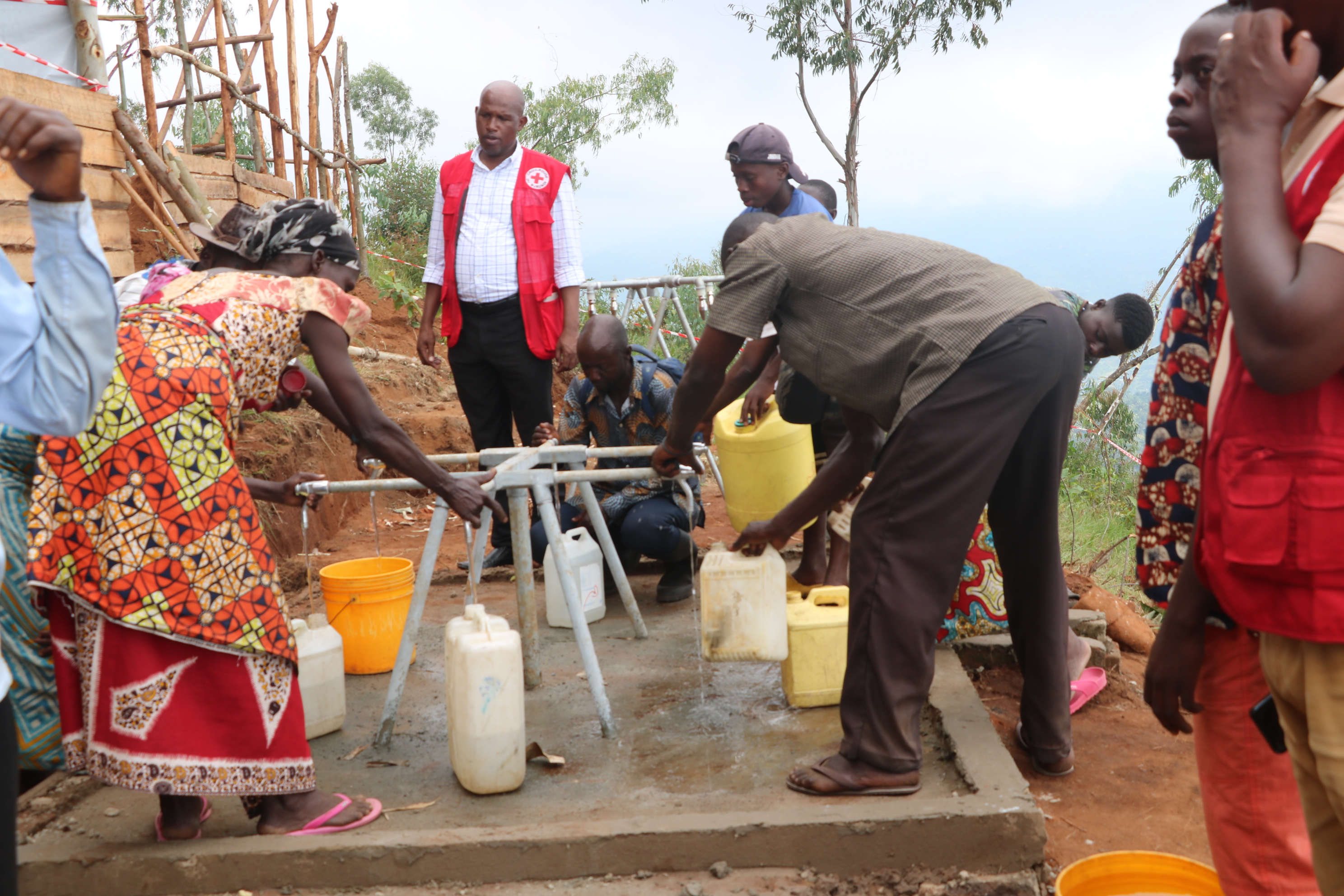
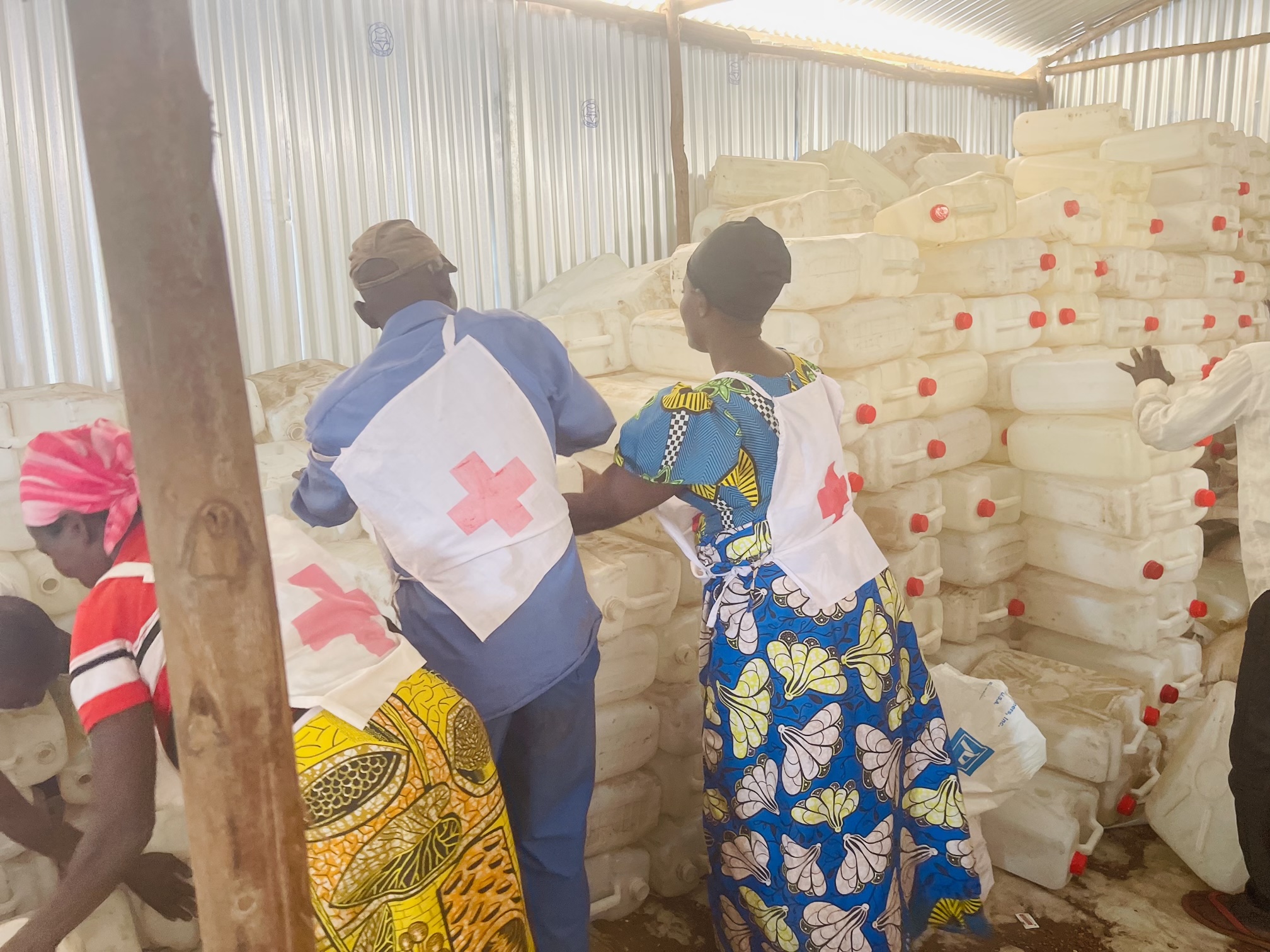
Belgian Red Cross-Flanders released 300,000 euros to support the Burundi Red Cross in emergency relief efforts. Among other things, these funds enabled the Burundi Red Cross to install five large water tanks and deliver 580,000 liters of drinking water to the hardest-hit areas. In addition, 1,800 hygiene kits were purchased and distributed to affected families. Also, 40 toilets and 8 showers were installed in shelters to ensure the basic needs of the displaced.
Thanks to your support, more than 2,300 families were able to receive needed support in the past six months. Although much good work has been done, the situation remains worrying. Especially now that the second rainy season of the year has started and the country is also affected by the Mpox epidemic. The Burundi Red Cross remains committed to saving lives and enabling reconstruction in the affected areas.
On Sunday, Sept. 10, Libya was hit by Hurricane Daniel. The country's extreme rainfall led to the rupture of two dams and caused disastrous flooding in northeastern Libya. The hardest hit areas included the city of Derna, where entire neighborhoods were swept into the sea. The heavy flooding affected several coastal towns such as Benghazi, Al-Jabal Al-Akhdar, Al-Marj, Batah, Bayade, Albayada, Shahta and Sousa, causing many casualties and massive damage to infrastructure. More than 45,000 people are estimated to have been displaced, 4,352 people died and 8,000 are still missing. A total of 284 educational institutions were affected and 128 health facilities. There is extensive damage to roads and shortages of water and electricity.
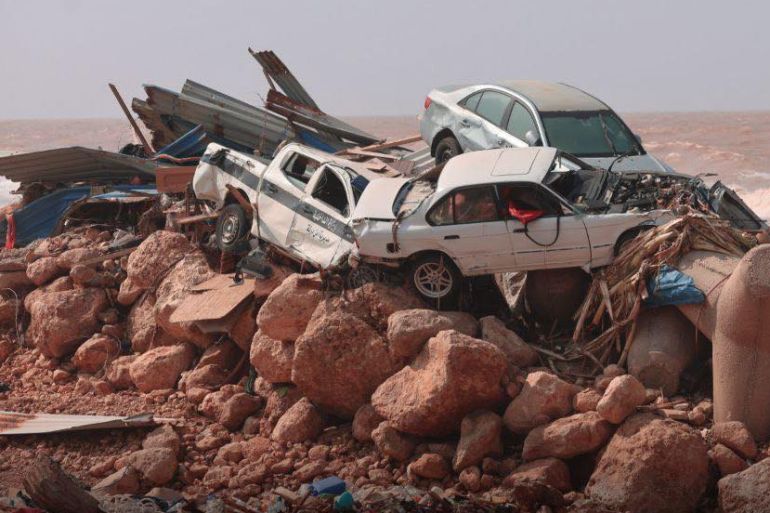
A massive 6.8 magnitude earthquake struck Morocco on Friday, Sept. 8. The most affected provinces are Taroudant, Marrakech, Chichawa and Al Haouz, located in central Morocco about 75km from the city of Marrakech. The affected areas are mainly in the High Atlas mountains, making accessibility difficult. As a result of the severe destruction caused by this earthquake, some 3,000 people were killed and 3,500 injured. In all, 60,000 homes were destroyed and 500,000 people were internally displaced. Some 530 schools were also damaged by the earthquake, affecting some 100,000 children and youth.
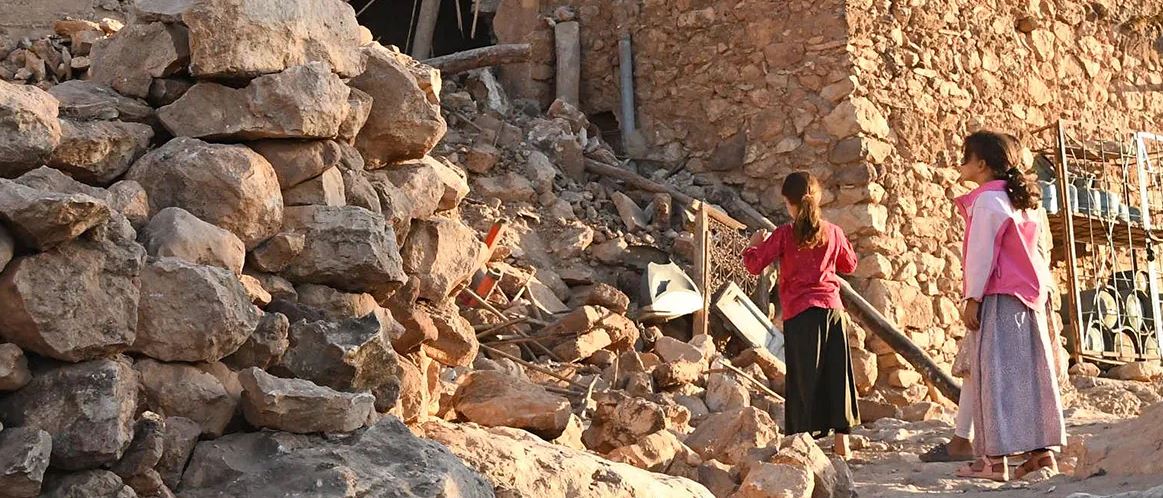
A year ago, Morocco was hit by a devastating earthquake. Thanks to the immense solidarity of Flemings, Belgian Red Cross-Flanders was able to raise more than €900,000 for relief efforts in the affected area.
These funds were transferred in cooperation with the German Red Cross to the Moroccan Red Crescent, which went into action immediately after the disaster with search and rescue operations, medical aid, emergency relief and shelter for more than 23,000 severely affected people.
Last year, Marie from Belgian Red Cross-Flanders went to Marrakesh to strengthen coordination on the ground. Despite the progress made, challenges persist due to remoteness and extreme temperatures.
However, our mission does not end. Belgian Red Cross-Flanders remains committed to long-term support, with a focus on capacity building, disaster preparedness and basic health care in affected regions.
A gift to our Emergency Relief Fund allows us to jump right into action in the next global disasters and help where and when it is needed. Even in silent disasters that don't make the news. Because every second counts ...
Make a donation to BE53 0000 0000 5353 with the mention 'Emergency Relief Fund' and help people in need.
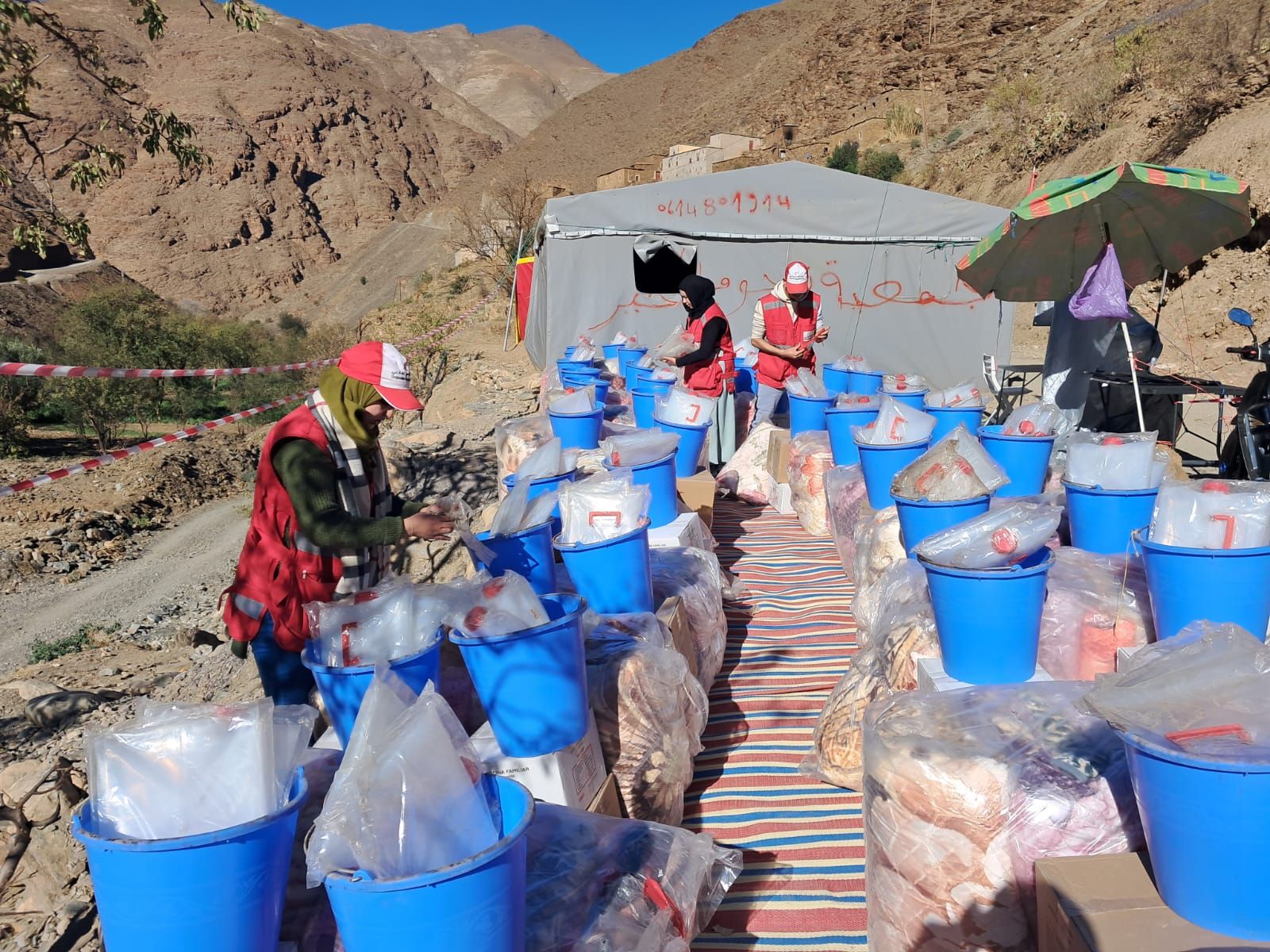
The conflict in Sudan broke out in April and has taken a heavy toll on the population. 8.2 million people have fled, of whom 6.5 million are internally displaced and 1.76 million have sought refuge in other countries, mainly Chad, Egypt, South Sudan and Ethiopia. This situation is compounded by the pre-existing challenges facing Sudan: economic instability, climate change and persistent drought, leaving 24.8 million people in urgent need of humanitarian assistance.
Belgian Red Cross-Flanders released 150,000 euros from the Emergency Relief Fund in June 2023 for life-saving humanitarian support in Sudan. The money will be deployed through the International Red Cross, which supports the Sudanese Red Crescent in their relief efforts. The priorities are medical support and supplies on the one hand, and distribution of potable water and food on the other.
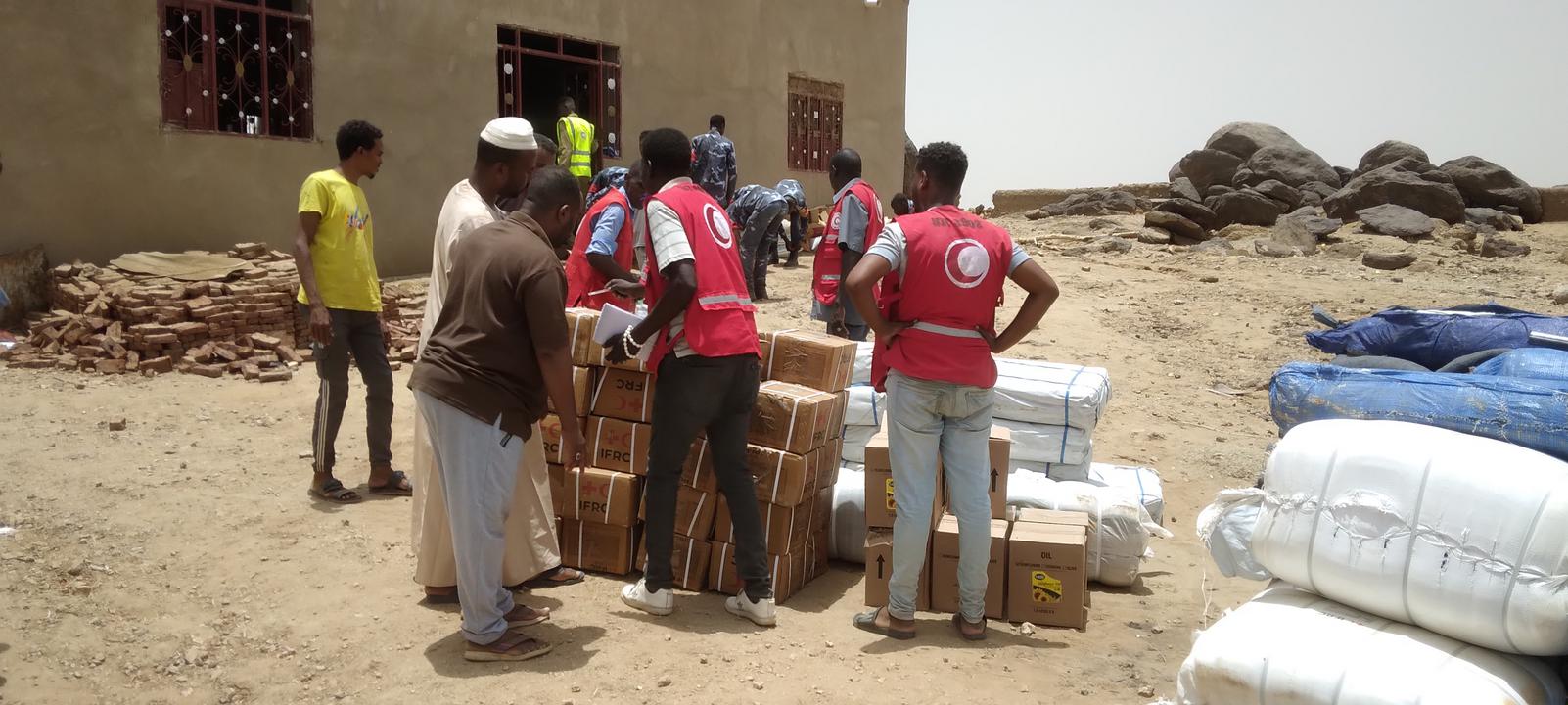
With the passage of Storm Freddy in Southeast Africa, the situation on the ground is alarming. After 3 weeks of storms, there are already nearly 600 deaths, some 400,000 displaced people and enormous material damage. In addition, about 100,000 hectares of farmland have been affected, threatening food shortages. That is why Belgian Red Cross-Flanders is releasing 100,000 euros from the emergency relief fund for humanitarian support. In addition, Belgian Red Cross-Flanders has permanent staff in Mozambique, working with the local Red Cross there to coordinate emergency relief .
The effects of storm Freddy are greatest in Malawi, but there is also a lot of human and material damage in Mozambique. Moreover, the situation is extra precarious because this crisis comes on top of two other crises: there were already heavy floods in southern Mozambique at the beginning of February, and there is a major cholera outbreak, particularly affecting Malawi. This new heavy rainfall from storm Freddy, resulting in new flooding, ensures that the cholera outbreak will continue to spread.
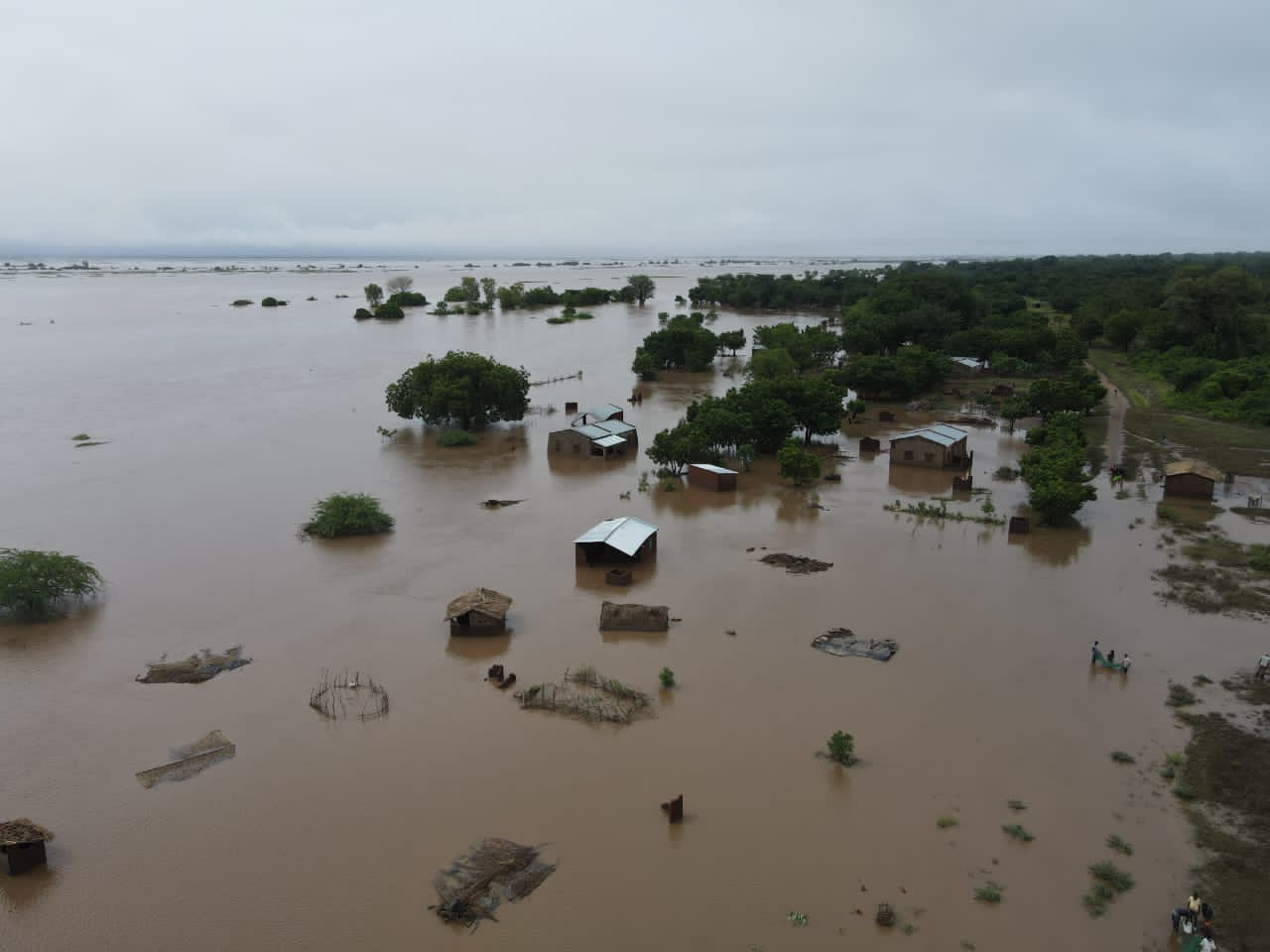
On Monday, Feb. 6, parts of Turkey and Syria were hit by severe earthquakes. The material damage is enormous and the human toll is also high.
The Turkish Red Crescent and the Syrian Red Crescent have been on the ground from the start of the disaster, providing the most acute assistance there, ranging from rescue operations in the affected areas, to providing medical aid, to providing housing for the victims who no longer have shelter.
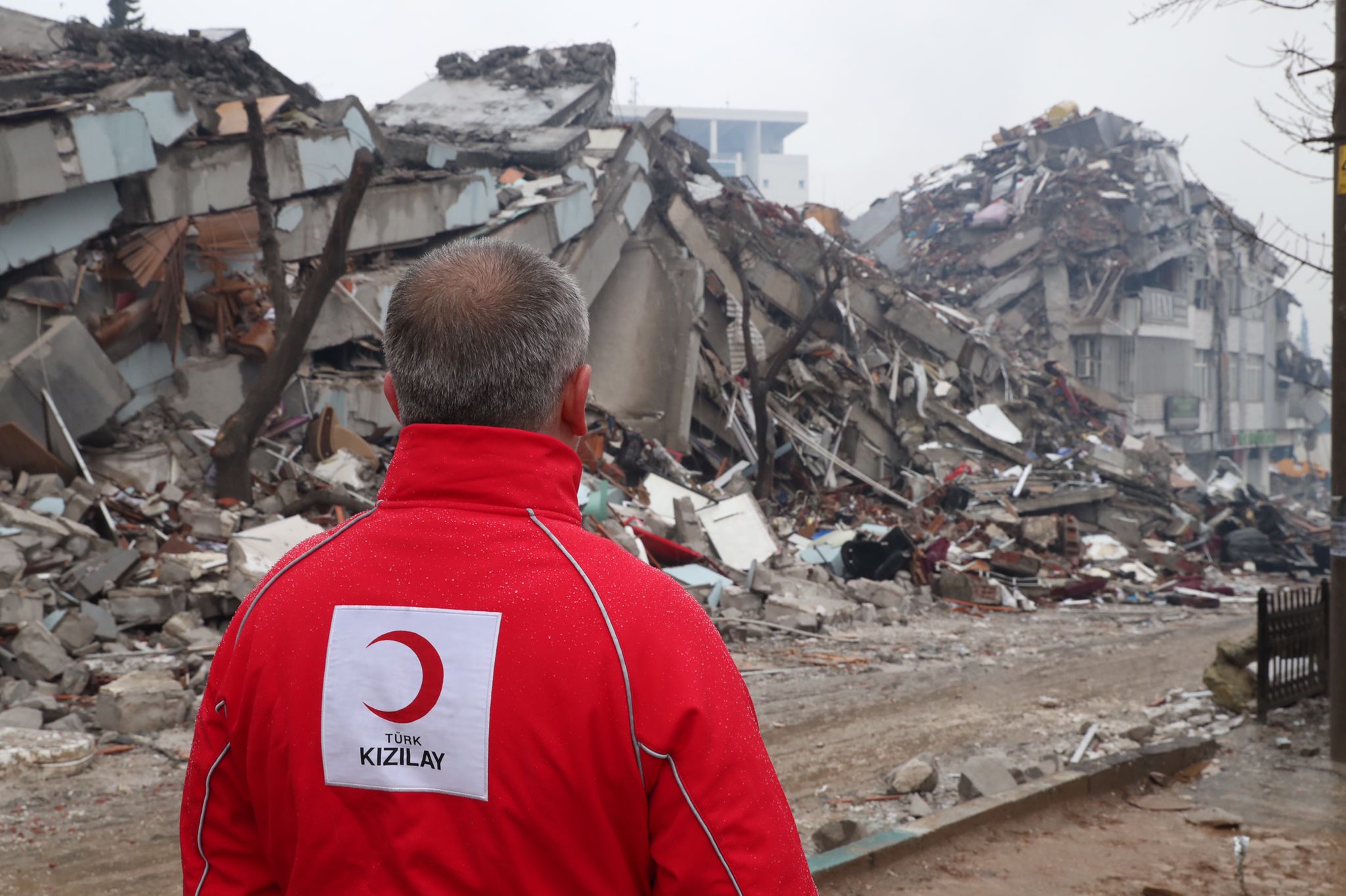
2 years after earthquakes in Turkey and Syria
Two years ago, a devastating earthquake hit Turkey and Syria.
Thanks to the immense solidarity of the Flemish people, Belgian Red Cross-Flanders was able to collect5,359,936 euros for relief efforts in the affected area.
With this support, we donated 219 tents to the Turkish Red Crescent, among others, and helped the Syrian Arab Red Crescent purchase and distribute 11,811 food parcels, serving some 61,085 people.
The current situation remains critical. In Turkey, the majority of the affected population is currently still residing in container villages or emergency shelters. In Syria, the earthquake combined with 13 years of lingering crises has left most major cities completely in ruins, with barely functioning infrastructure and a lack of resources for reconstruction.
Both the Turkish Red Crescent and the Syrian Arab Red Crescent are still fully committed to supporting earthquake victims today. For example, the Red Cross continues to provide psychosocial support.
In addition to this psychosocial aftercare, the Red Cross helps people rebuild their lives. In the last two years, for example, several vouchers have been distributed to support families in their basic needs. In addition, there are ECOSOC (=economic security) projects to support individuals individually to recover and rebuild their incomes. Thanks to your support, our colleague Marie was also able to participate in one of those projects and supported the International Committee of the Red Cross (ICRC) and Syrian Arab Red Crescent (SARC) teams.
"Together with my team (ICRC and SARC), we worked to restore and improve local agricultural and livestock production, by distributing sheep or plant seeds, for example. In addition, we assisted people in restarting local economic activities, for example, opening a store or barber store. Our efforts help increase production for local markets, allowing people to regain income and improve their standard of living. The needs of the population are still pressing even after all these months, but our actions demonstrate the importance of the recovery phase and provides long-term solutions for the population. " says Marie
Will you help make a difference for people in need?
A gift to our Emergency Relief Fund allows us to jump right into action in the event of subsequent global disasters and help where and when it is needed.
Make a donation to BE53 0000 0000 5353 marked "Emergency Relief Fund" and help those in need.
The situation in Pakistan following floods is very worrying. The Pakistani government already declared a state of emergency last week. And on Wednesday, the World Health Organization declared the highest level of alert. There are already at least 1,100 dead and 3,600 injured. The needs on the ground are enormous. That's why Belgian Red Cross-Flanders is releasing 250,000 euros from the emergency relief fund. Initially, that money will be used mainly to distribute food parcels and hygiene kits to the victims.
The funds are deployed through the German Red Cross, as they have been active in Pakistan since 1983 and are also present on the ground today. There they are providing much-needed support to the Pakistan Red Crescent, the main humanitarian organization in the country. Initially, the funds will primarily be used to distribute food parcels and hygiene kits to the victims.
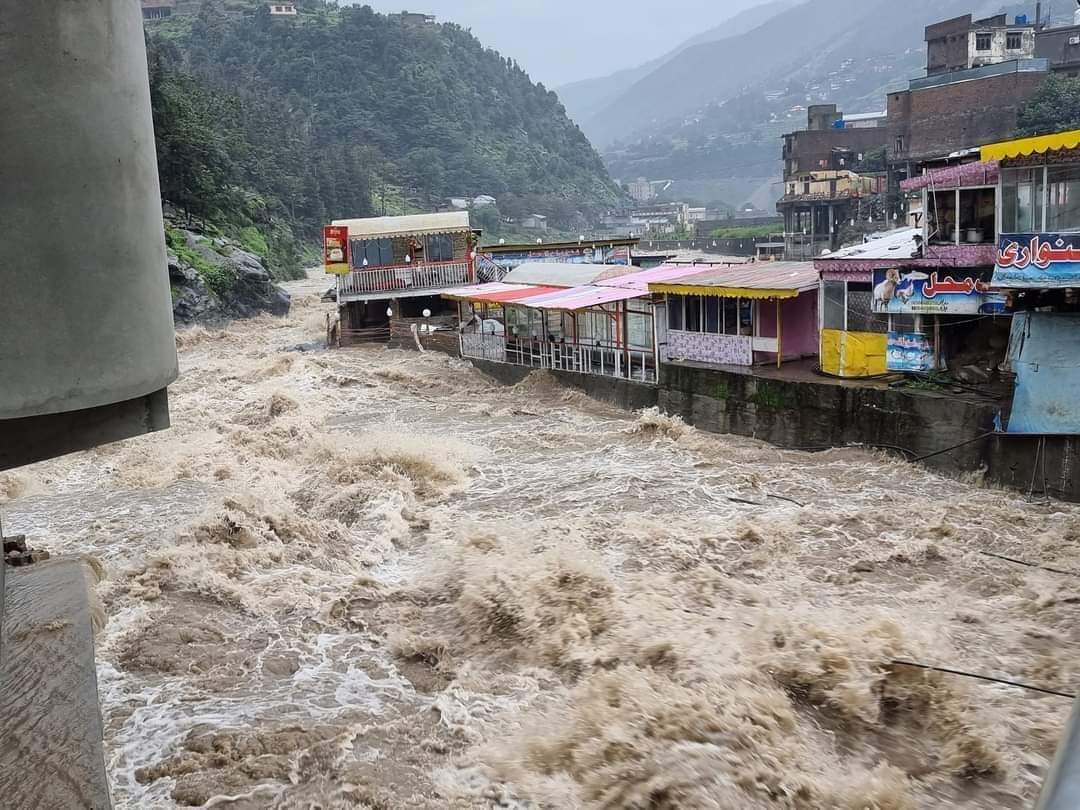
A devastating disaster or deadly conflict can occur anywhere in the world. Often with dramatic consequences for those affected. Around the world, millions of vulnerable people desperately need our help.
Help. Make a donation to BE53 0000 0000 5353 marked "Emergency Relief Fund" and help people in need.
Thanks to our largest global network, local Red Cross volunteers can help anytime and immediately. Your donation contributes to this.